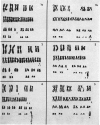Abstract
In a recent study of chromosome breakage frequencies in 36 primary fibroblast cell strains derived from skin from 10 phenotypically normal women, we observed seven different clones of cells having consistent chromosomal abnormalities. Five of the stem lines were noted in cultures from "control" women and two in fibroblasts from women taking oral contraceptives. We observed aneuploid clones as well as stem lines bearing structural abnormalities (e.g., translocation, inversions). The various aberrant clones were found in cultures ranging in age from 41 to 144 days and comprised varying percentages of the cell populations ranging from 0.8% to virtually 100%. The possible evolution in culture of clones of cells having aberrant karyotypes should be considered in interpreting findings from fibroblast cultures initiated for clinical evaluation.
Full text
PDF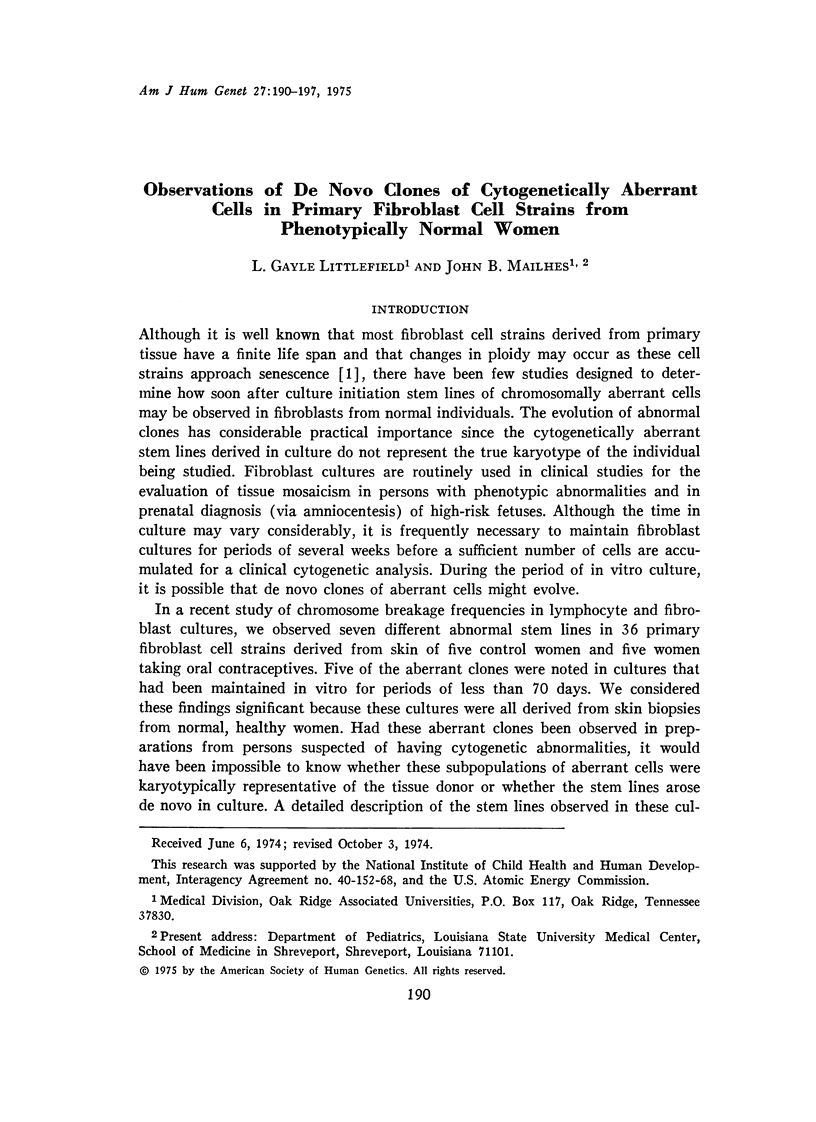
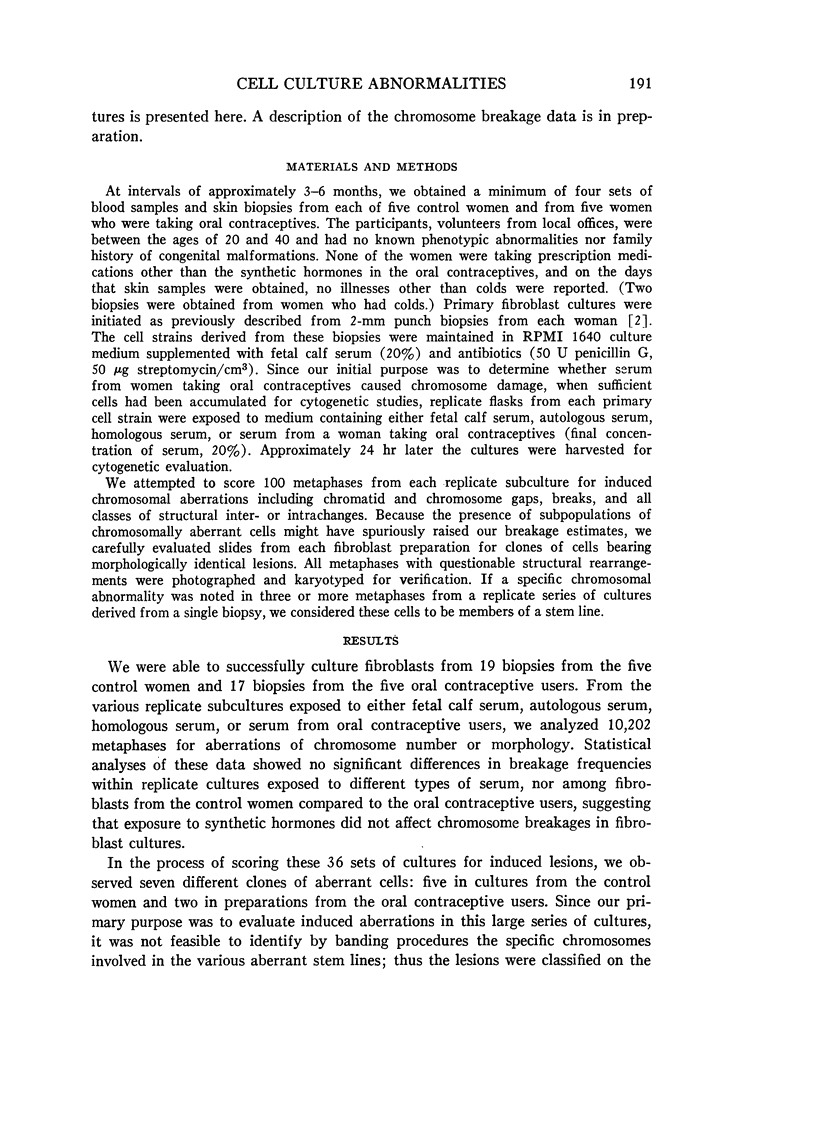
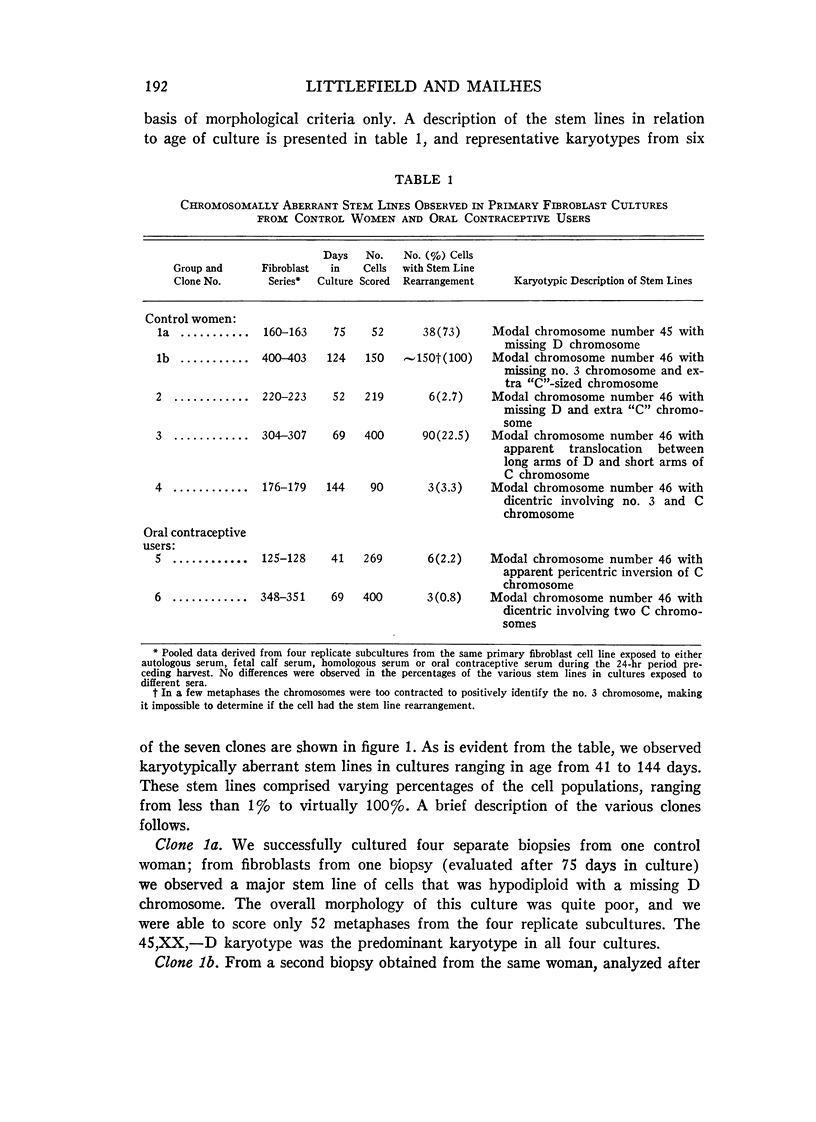
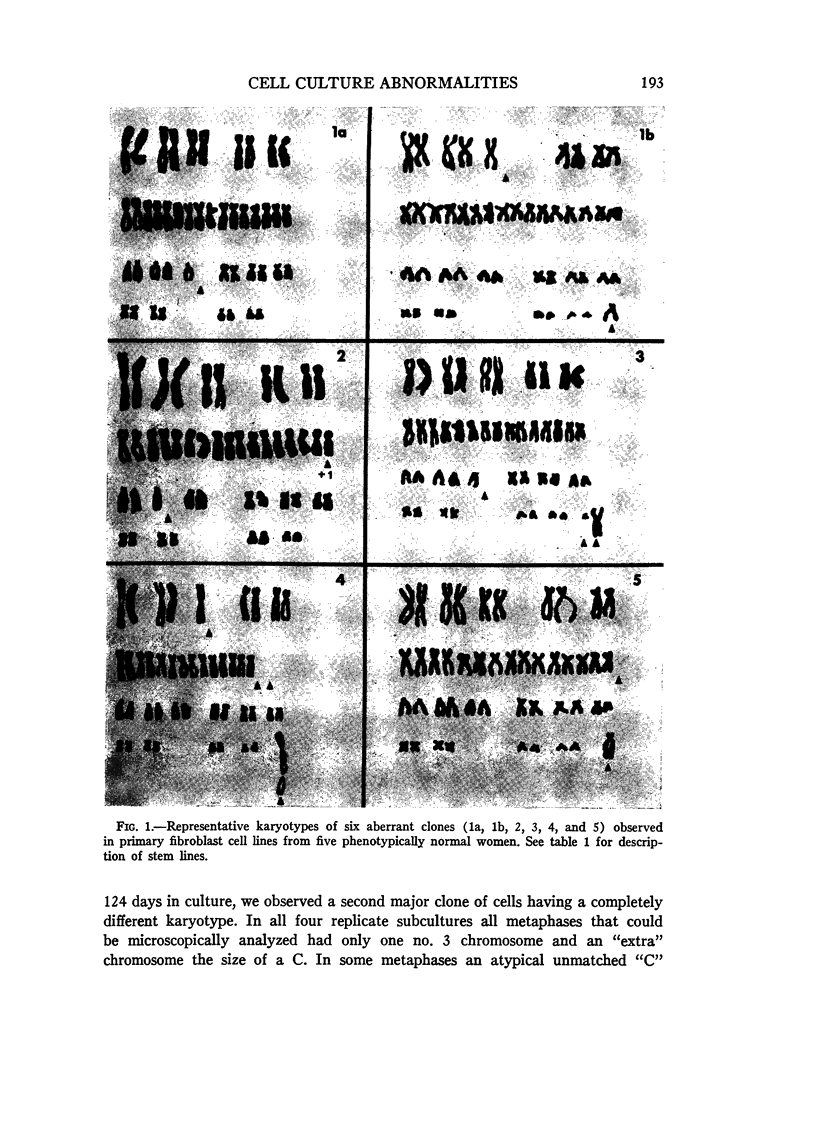
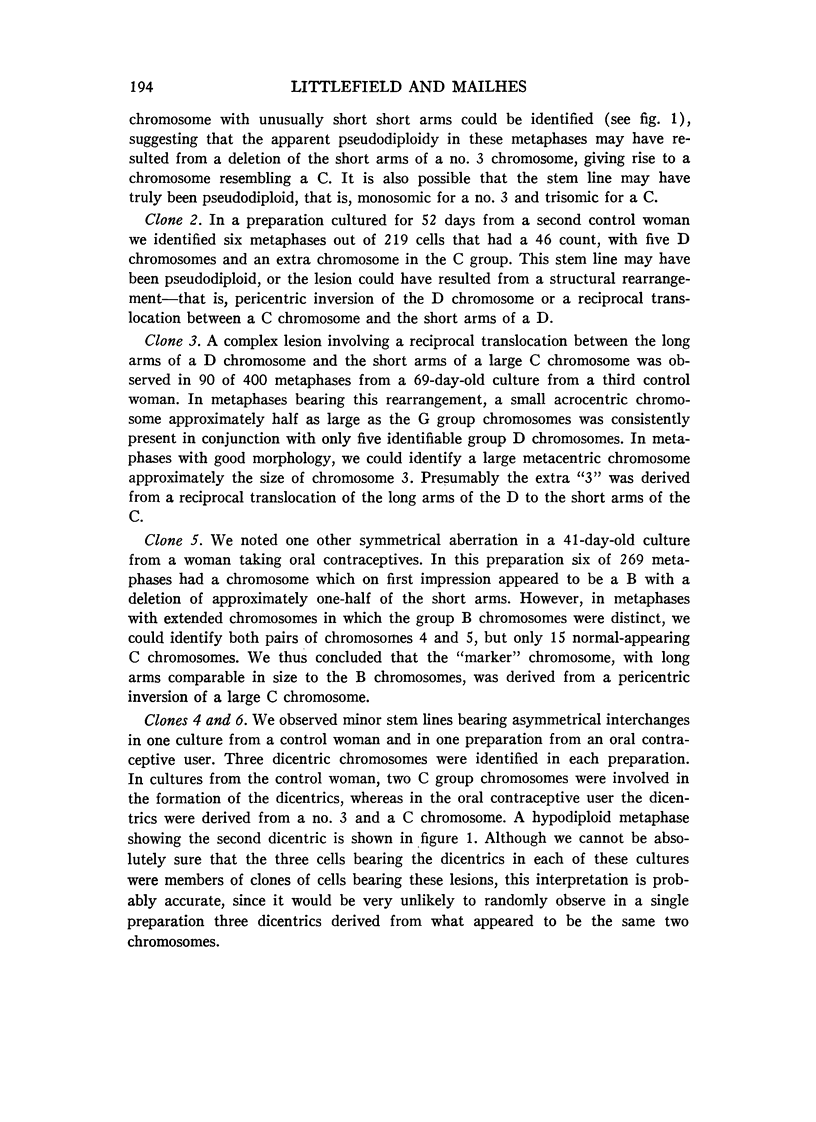
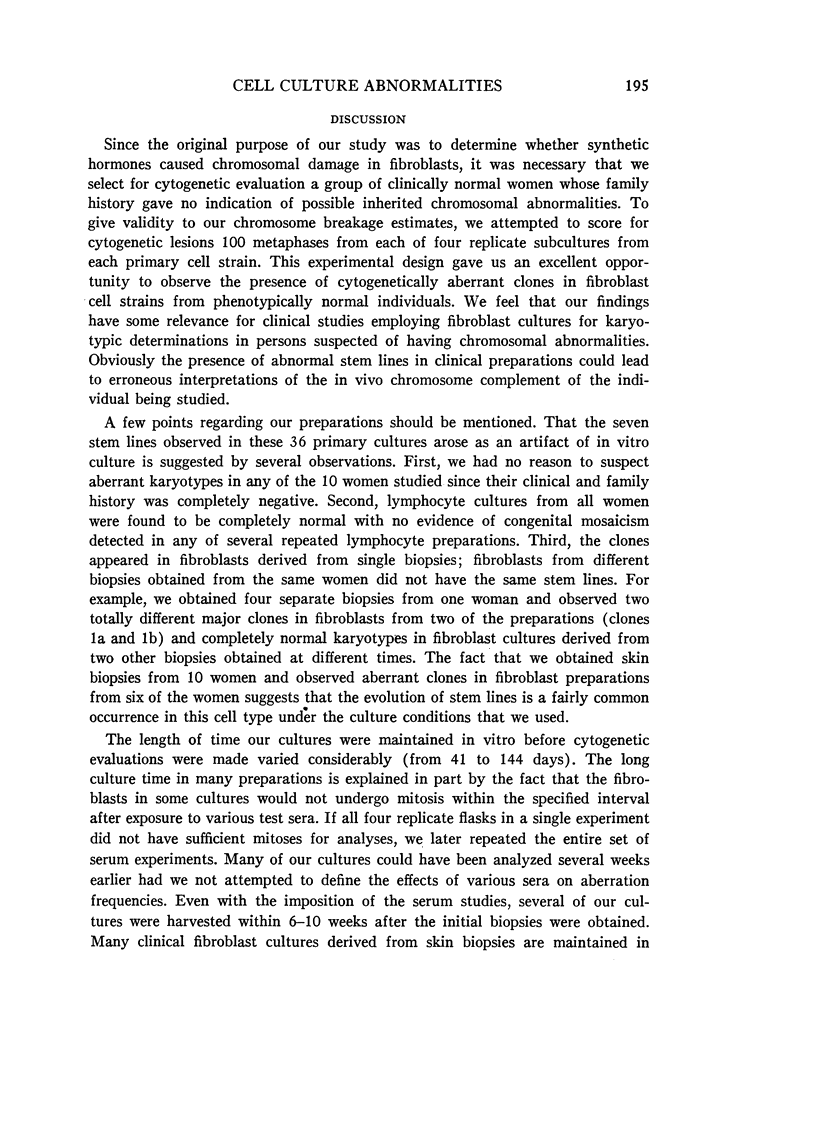
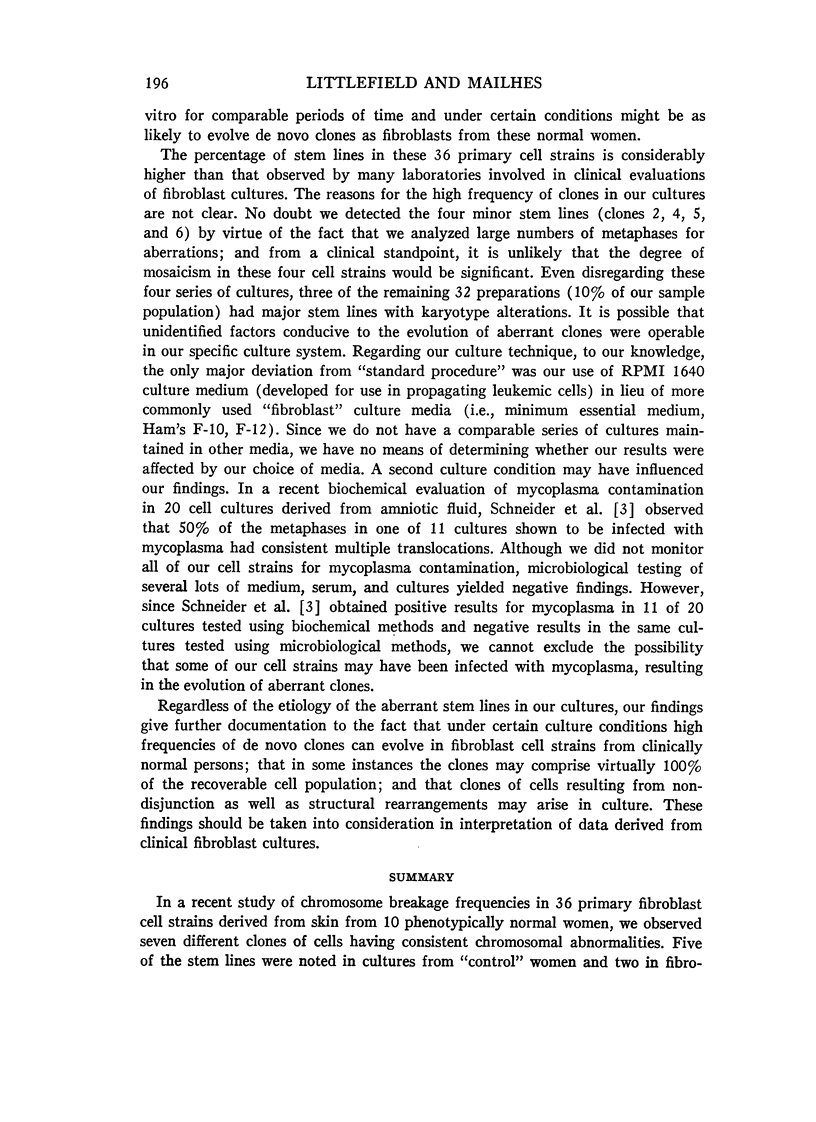
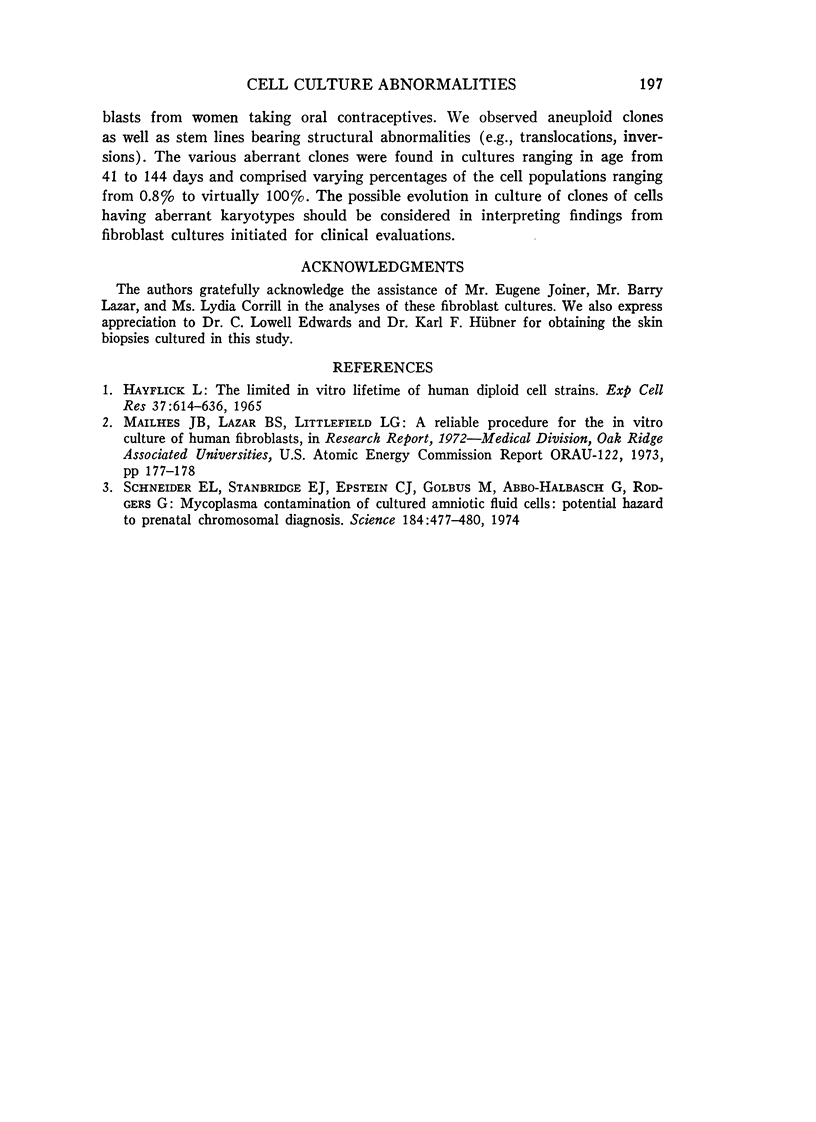
Images in this article
Selected References
These references are in PubMed. This may not be the complete list of references from this article.
- HAYFLICK L. THE LIMITED IN VITRO LIFETIME OF HUMAN DIPLOID CELL STRAINS. Exp Cell Res. 1965 Mar;37:614–636. doi: 10.1016/0014-4827(65)90211-9. [DOI] [PubMed] [Google Scholar]
- Schneider E. L., Stanbridge E. J., Epstein C. J., Golbus M., Abbo-Halbasch G., Rodgers G. Mycoplasma contamination of cultured amniotic fluid cells: potential hazard to prenatal chromosomal diagnosis. Science. 1974 Apr 26;184(4135):477–480. doi: 10.1126/science.184.4135.477. [DOI] [PubMed] [Google Scholar]



